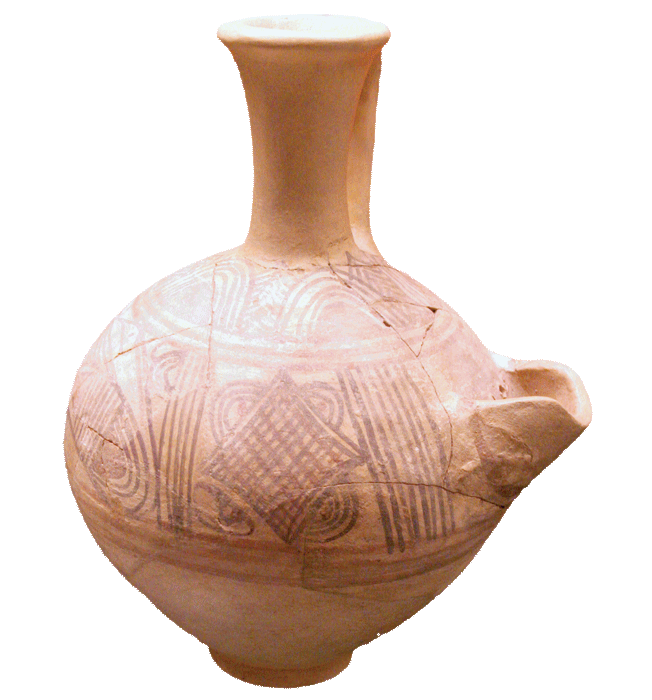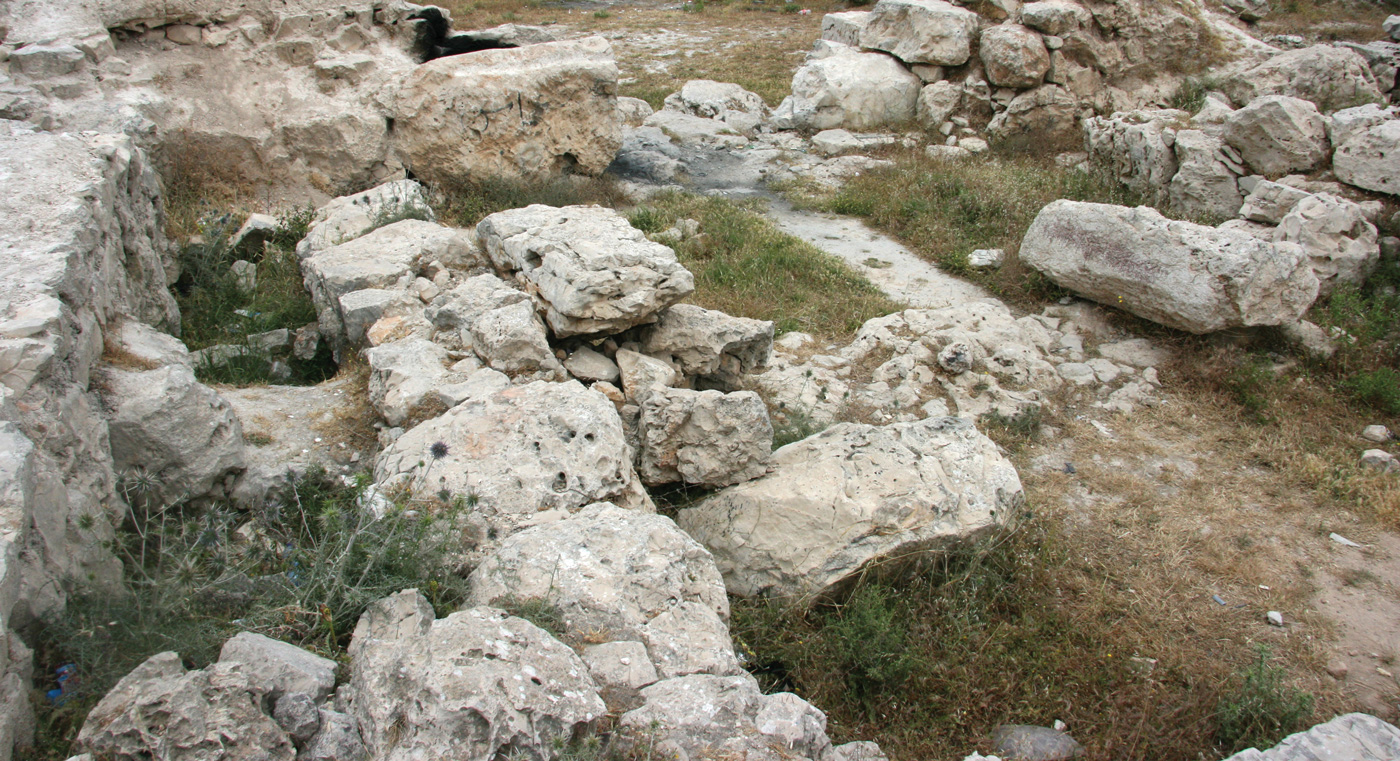Judges
Becoming like the Canaanites
Central Teaching
The Israelites in the promised land disobey God and turn to idolatry, progressively becoming more and more like the pagan Canaanites they were supposed to drive from the land.
Memory Verse
Setting
Throughout Exodus, Numbers, and Deuteronomy, God warns the Israelites that if they abandon him and turn to idols, then he will punish them and even expel them from the land. In the book of Joshua, Israel moves into the promised land, defeating all of the major powers in the area. The leaders of Joshua’s generation, those who first entered the land, remain faithful to God all of their lives. Judges picks up the story where the book of Joshua leaves off, just as this first generation to inhabit the promised land leaves the scene. In the generations that follow, the behavior and obedience of the Israelites will change drastically.

A decorated Philistine jug, probably used for serving beer
Message
The purpose of Judges is to show the failure of Israel to keep the Mosaic covenant (Exodus, Leviticus, Numbers, and Deuteronomy) after God gives them the promised land. Judges paints a dreadful picture of a rapid, downward decline, both theologically and morally. Repeating a terrible cycle, the people sin and turn away from God, which results in a foreign nation overrunning and oppressing them. God, in his mercy and grace, sends a judge to deliver them. The people, however, soon turn away from God again, only to be conquered and oppressed once more. God sends another judge to deliver them, and the pattern repeats. However, as the story moves along things seem to get worse. Most of the judges are tainted in some way and do not measure up in their behavior. Furthermore, not only have the Israelites failed to drive out all of the Canaanites, but they are quickly becoming just like the Canaanites, serving Canaanite gods and embracing Canaanite morality. By the end of the book, the situation is disastrous: a Levite priest becomes a leader in idol worship; the tribe of Dan slides into idolatry and abandons their inheritance; an Israelite city behaves just like Sodom and Gomorrah (the picture of Canaanite immorality); and the Israelites unite to destroy one of their own tribes (Benjamin).

Gold earrings. Gideon’s soldiers each give him a gold earring that they took from the slain Ishmaelites.
Outline
Interesting Features
- God gives victory over the Canaanites through two women (Deborah and Jael).
- Gideon defeats a huge Midianite army with only three hundred men.
- All of the judges except Othniel and Deborah are tainted in some way.
- The book of Judges contains the colorful and tragic story of Samson and Delilah.
- The end of the book (Judg. 19–21) is horrific and disgusting.

The remains of an ancient gate at Shechem. The city of Shechem and its citizens play a major role in Judges 9.
Connections
Judges illustrates for us the tragic consequences of sin. Once people abandon worshiping God, they usually embrace the corrupt morals of their surrounding culture quickly, spiraling downward both morally and theologically. The most amazing thing about the book of Judges is that the Bible does not end there. That is, after reading Exodus and Deuteronomy it is surprising that the terrible sin of Israel in Judges does not bring about the end of the story—God should simply destroy them. We get a good picture of the depth of God’s grace and mercy as we read on and realize that in spite of Israel’s terrible sin, God will still send them real deliverers (Samuel, David, and ultimately Christ).